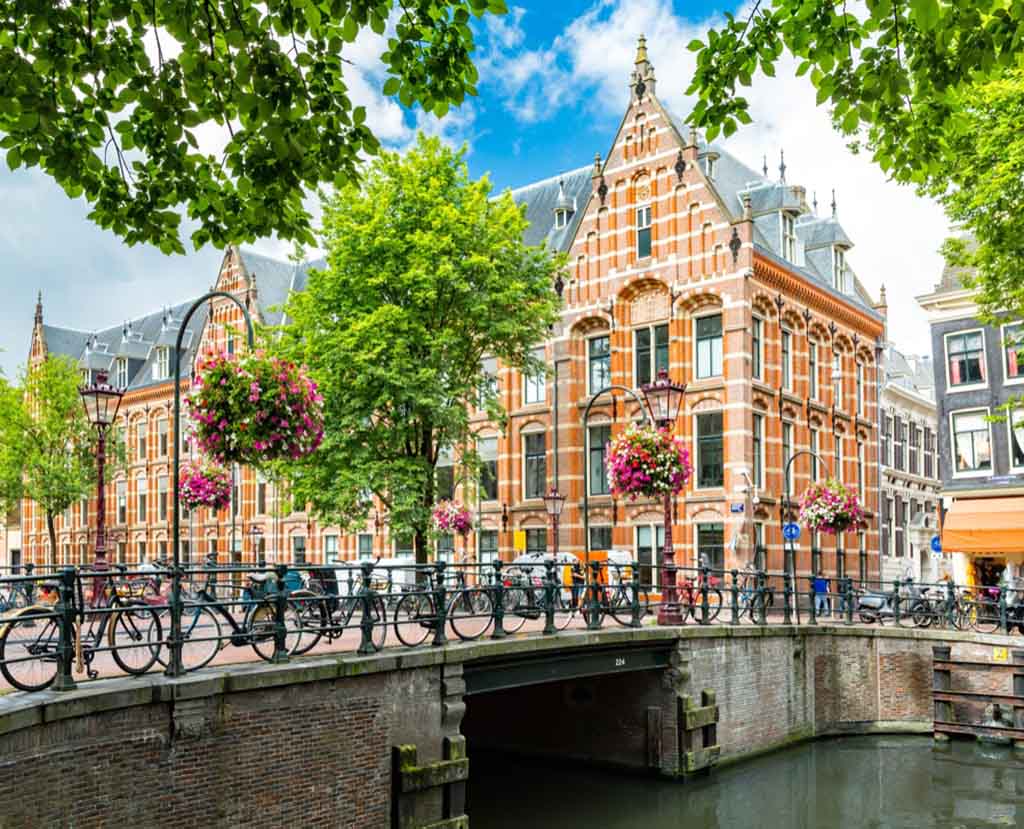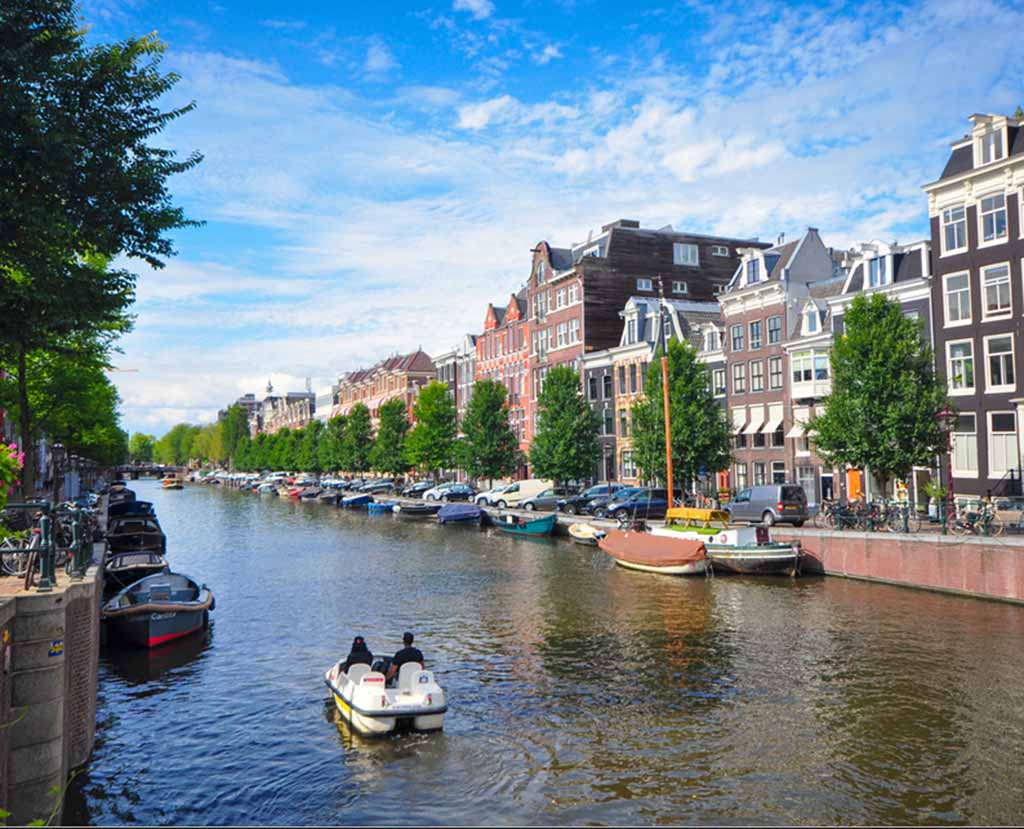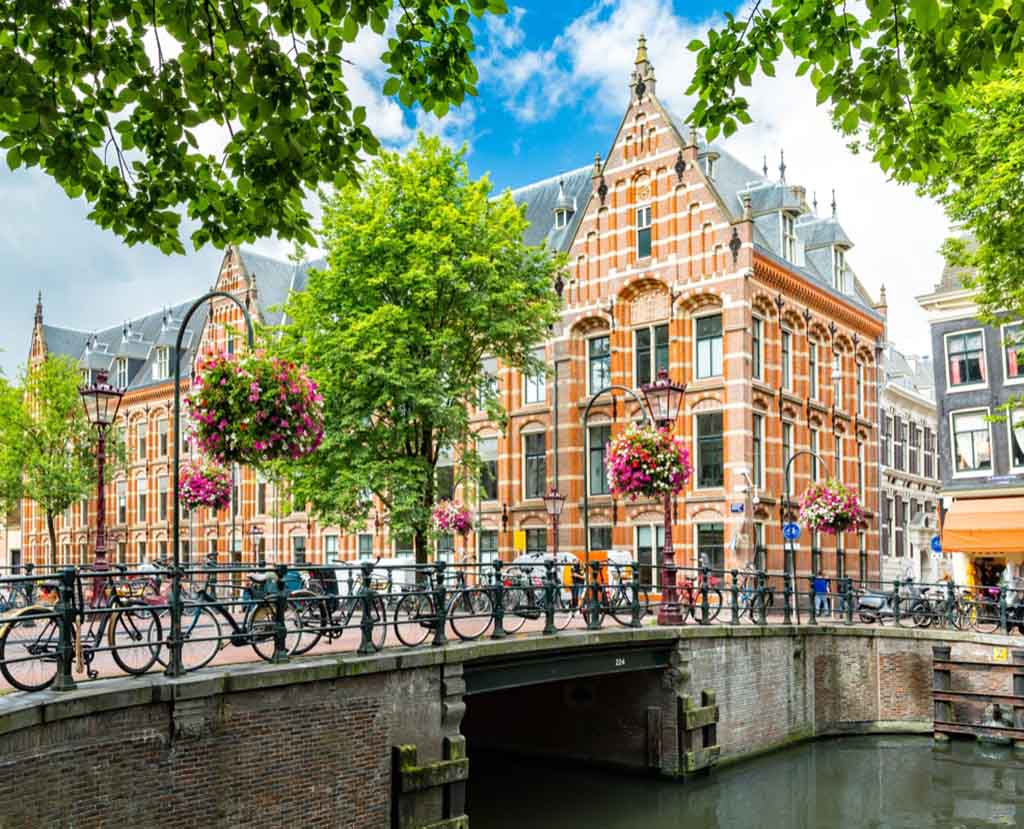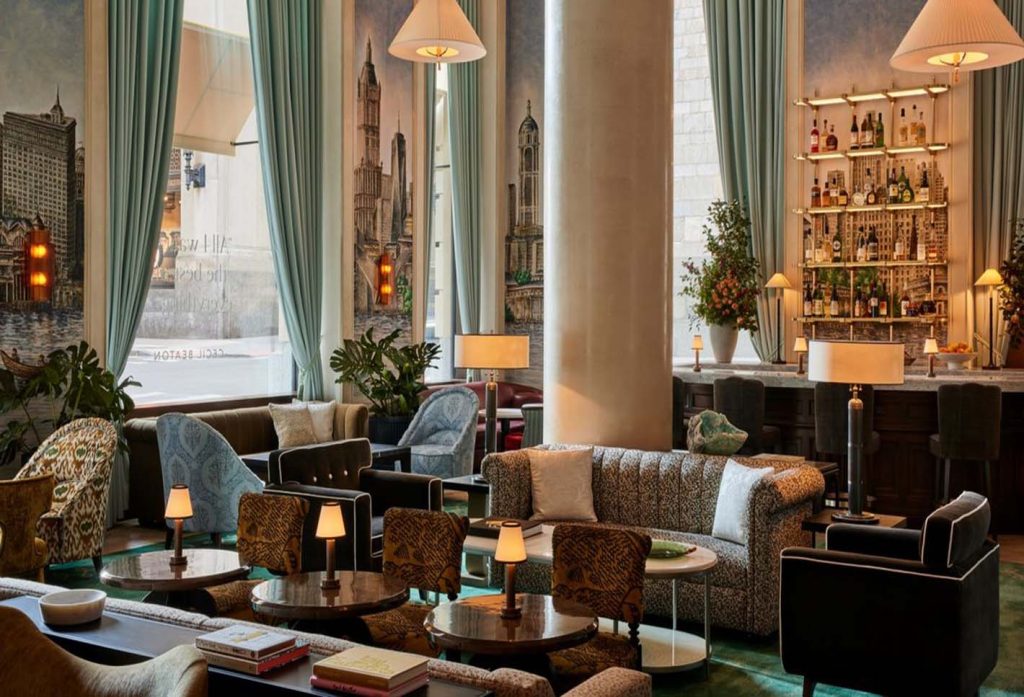If you are planning to travel to Amsterdam for the first time, you may be surprised by the search results on major hotel booking platforms: there are hundreds of hotels with a score of 8.5 or above, and it seems that every one of them has received “rave reviews”.
But travelers who have actually been there know that a high score does not equal a good experience. The score is just an average and does not reflect all the details.
If you don’t carefully check the comments and room descriptions, the chances of falling into traps are very high. Common “rating traps” include rooms that are so small that you can hardly turn around, steep and narrow stairs with no elevators, street noise all night, and even key information such as “shared bathroom” is hidden in an inconspicuous corner, which makes people feel embarrassed after checking in.
Ⅰ. Avoid pitfalls first: those common types of “high ratings but poor experience”
1. “Old building renovation” = staircase hell
Amsterdam is famous for its old buildings, which is also its beauty. But many high-rated hotels are renovated old buildings. Although the decoration is new, it does not mean convenience. Many hotels do not have elevators, and the stairs are extremely steep, which is extremely unfriendly to travelers with large luggage or elderly travelers.

2. “Good location” but hidden in the red light district
You may see a hotel described as “five minutes walk to the central station” and has a high rating, but it is actually located in the red light district (De Wallen) or the nightlife district (Leidseplein), which is noisy at night and the security is not suitable for families or solo women.
3. Shared facilities behind “high cost performance”
On some platforms, the highly rated “Budget Hotel” is not clearly marked, and many room types have shared bathrooms or windowless rooms. If you don’t read the room description carefully, it is very easy to step on it by mistake.
4. “Newly opened” ratings are falsely high
New hotels will have many promotions and friendly reviews in the early stage of opening, and the ratings are often falsely high, the facilities are not fully complete, and the operating experience is insufficient.
5. “Breakfast included” ≠ rich meals
Many accommodations are marked as “great breakfast” in the ratings, but in fact they are just a few slices of toast and a cup of coffee. The content of breakfast must be specifically judged by user pictures and comments.
Ⅱ. Step 1: Clarify the key points of information screening, don’t just look at the average score
Before searching for hotels on any third-party booking platform, set the following screening conditions first, which can greatly increase your chances of selecting “reliable accommodation”.
Key screening condition suggestions:
Rating range: control between 8.2 and 9.0. Ratings that are too high often have a small sample size or are controlled.
Number of reviews: It is recommended to have a hotel with at least 500 reviews, as the sample is more realistic.
Complete room description: whether it indicates whether it has a private bathroom, whether it has windows, and whether it has an elevator.
Free cancellation policy: Especially in cities like Amsterdam where prices fluctuate greatly during the peak season, flexible cancellation is very important.
Whether it is marked as “newly opened” or “renovated”: This type of accommodation needs to be particularly careful about the water in the rating.
Ⅲ. Step 2: Learn to read “negative feedback from user reviews”
When choosing a hotel in Amsterdam, it is not enough to rely on ratings alone. The truly valuable information is often hidden in the “bad reviews” and “average reviews”. By reading negative reviews in depth, you can get a more comprehensive understanding of the real situation of the hotel, thus avoiding problems covered up by the high scores on the surface.
Pay attention to noise issues: Amsterdam streets are generally narrow, and many city center hotels are close to tram tracks or bar streets, which can be very noisy at night. Negative reviews often mention “I can’t fall asleep at night” or “bar music lasts until the early morning”, and this kind of information is very critical.

Check the hygiene details: Negative reviews often mention whether the sheets are changed, whether there is any odor, whether the bathroom is moldy, and other hygiene issues, which are more real than official photos.
Security assessment: It is especially important to check whether there are tourists reporting that their luggage has been stolen, the door is not secure, and there is no security patrol at night.
Employee service attitude: Negative reviews can reveal whether the service is perfunctory, the language is not understood, or whether the problem is delayed.
Comparison of breakfast conditions: Many people complain that “the breakfast does not match the photos” and “there are very few choices”. With the photos uploaded by users, the quality of the food can be judged more realistically.
With this information, you can truly restore the actual accommodation experience of a hotel.
IV. Step 3: Use “third-party booking platforms” to compare prices
When booking a hotel in Amsterdam, “only looking at one platform” often means missing out on many hidden offers. In fact, even for the same hotel, there may be significant differences in prices, cancellation policies, payment methods and additional services on different booking platforms. Therefore, using multiple platforms flexibly for price comparison is the key to avoiding “high ratings and high prices but low cost performance”.
1. Booking
Booking is currently one of the most comprehensive international hotel booking platforms, especially in popular tourist cities such as Amsterdam, with detailed user reviews and a clear rating mechanism, which is suitable for comparing different room types and accommodation details. The platform supports flexible terms such as “free cancellation” and “delayed payment”, and members can also enjoy “Genius” exclusive discounts, which is suitable for independent travelers with frequent changes in plans and attention to evaluation details.
2. Agoda
Agoda is more popular among Asian users, with a multilingual interface and frequent “hidden price” offers, making it one of the top choices for budget travelers. When booking in Amsterdam, its prices are often subtly different from Booking’s, especially during promotions, and it can be used as one of the main price comparison platforms.
3. Expedia
In addition to hotel reservations, Expedia also focuses on “packages”, such as “air tickets + hotel” combinations. Sometimes a whole booking is cheaper than a separate booking, which is suitable for users who want to arrange their travel in one stop. In addition, its customer service system is relatively mature, suitable for travelers who need more after-sales protection.
4. Hostelworld
If you are a backpacker or a budget traveler, Hostelworld’s youth hostel resources are definitely the first choice. The platform focuses on youth hostels around the world, suitable for young travelers looking for mixed dormitories, female-only beds and other room types, and the comments are closer to the actual experience of users of the same type.

5. Airbnb
Airbnb is suitable for families and friends to travel in groups. You can book an entire apartment or a separate room rented by local residents. The accommodation is flexible, spacious and well-equipped. It should be noted that some Airbnb listings are located in the suburbs or residential areas of Amsterdam, and it is necessary to combine the city’s transportation planning to decide whether it is suitable.
In short, using multiple platforms for cross-comparison can not only save accommodation budgets, but also more accurately lock in the type of accommodation that suits your travel rhythm and preferences.
V. Step 4: Master the “Golden Location of Amsterdam Accommodation”
The most suitable area for accommodation in Amsterdam is not the single “Central Station”.
1. Jordaan
Literary, quiet, and safe.
Most of them are small independent hotels and B&Bs.
Suitable for couples and photography enthusiasts.
2. Oud-West
Close to the museum district, convenient transportation.
There are many restaurants and cafes, and the atmosphere is young.
Suitable for family travel and cultural control.
3. De Pijp District
Multicultural gathering, rich food choices.
Hotel prices are relatively low and life is convenient.
Suitable for travelers with limited budgets but who don’t mind walking a lot.
4. Eastern Canal District (Oostelijke Eilanden)
Quiet with water views, suitable for healing trips.
There are many newly renovated apartments with a strong sense of design.
Suitable for designers and slow travelers.
Although there are many accommodation options in Amsterdam, it does not mean that “the higher the score, the better”. Only by truly understanding the purpose, needs and budget of your trip can you find the “best for you” accommodation among the various options.
Don’t blindly believe in ratings, don’t ignore reviews, and don’t ignore the location. Make good use of the filter and comparison functions of the booking platform, start from the details, and use the “wisdom of filter” to live in the most reliable room in Amsterdam.
It is recommended to set price alerts two months before the trip and check the changes every day; the price of non-weekend accommodation drops significantly; choose a room with free cancellation option, so that you can adjust your strategy at any time.



